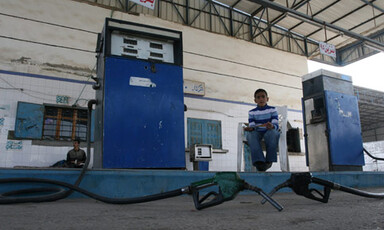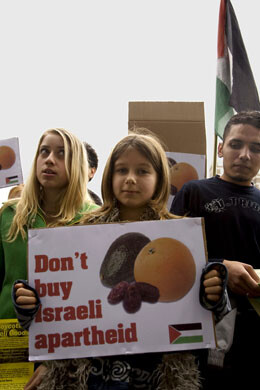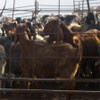
"No fuel, no gasoline, no benzene"
Gaza City, Gaza Strip 6 December 2007
With the majority of gas stations closed in Gaza due to the escalating fuel crisis, a group of local Gaza taxi drivers shared the fuel in their cars’ tanks, for the sake of going back home, rather than earning a living under already dire economic conditions. Majed Abu Sam’an, a driver of a Hyundai taxi minibus, was parked along with other drivers in mid-day Tuesday, 4 December 2007, siphoning gasoline from his car’s tank into that of another. “We are helping him so he can go back home, as he has been stuck here in Gaza City since the early hours of morning. We went to all the gas stations but they were closed, no fuel to buy,” says Abu Sama’an. Rami Almeghari reports for EI. Read more about "No fuel, no gasoline, no benzene"








